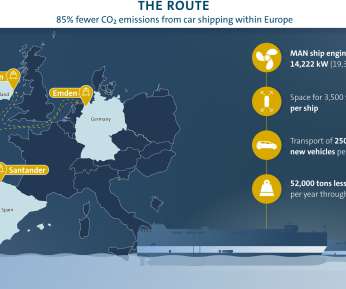Volkswagen fueling car carriers with fuel derived from used cooking oil; GoodFuels BFO
Green Car Congress
NOVEMBER 27, 2020
The fuel is produced from materials such as used oil from restaurants and the food industry. This way, we reuse waste oil in an environmentally compatible way. With 85 percent lower CO 2 emissions than with conventional fossil fuels, the contribution to climate protection is enormous.














Let's personalize your content